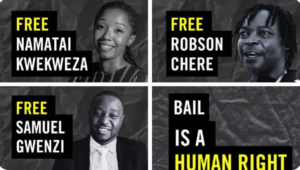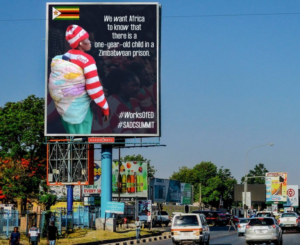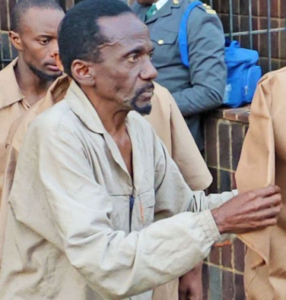CHIWENGA BLOCKS MNANGAGWA’S THIRD TERM

In a twist that reads like a script from a political thriller, Zimbabwean Vice-President Constantino Chiwenga, backed by the military’s strategic maneuvers, has effectively blocked President Emmerson Mnangagwa’s aspirations for a third term in office. This significant political move has forced Mnangagwa to publicly renounce any intentions of manipulating the constitution to cling to power – a demand fervently made by his supporters.
Mnangagwa had previously sidelined the army in favor of the state security service, the Central Intelligence Organisation (CIO), and its operative wing, Forever Associates Zimbabwe (FAZ), to secure his position in the last general elections. Despite concerns of internal sabotage, Mnangagwa’s reliance on the CIO over the military seemed to have paid off until military commanders, simmering with discontent behind the scenes, made their stance clear: the Mnangagwa and FAZ initiative would be decisively halted.
The army’s support has now visibly shifted towards Chiwenga, marking a dramatic halt to Mnangagwa’s CIO-driven project. Chiwenga’s influence within military ranks became unmistakably clear with the appointment of his close ally, Lieutenant-General Anselem Sanyatwe, as the commander of the Zimbabwe National Army—a move that undid Mnangagwa’s earlier decision to relegate Sanyatwe to an ambassadorial position in Tanzania, amidst a purge of military officials following the 2017 coup that brought Mnangagwa to power.
Despite the overt power play and Chiwenga’s apparent readiness to ascend to presidency, particularly evidenced by his high-profile wedding to Miniyothabo Baloyi last December, Mnangagwa continued to explore avenues for a third term, albeit with a semblance of plausible deniability. This approach, however, began to unravel as the push for a third term, spearheaded by Zanu PF youths under Mnangagwa’s tacit approval, met with political reality.
The campaign for a third term was openly pursued until it became unmistakably clear that such a path would be politically disastrous. Mnangagwa, testing the waters and finding them perilously deep, has since made a strategic retreat, now posturing as a staunch adherent to the constitution and the rule of law, despite his reelection being marred by unconstitutional practices and legal question marks.
With Chiwenga’s rise and the military’s backing, Mnangagwa has publicly stated his lack of intention to seek a third term, emphasizing Zimbabwe’s commitment to constitutional democracy and the rule of law. In an exclusive interview with “Brick by Brick” magazine, Mnangagwa denied any third-term ambitions, attributing such speculation to the imaginative spirit of Zimbabweans and affirming Zanu PF’s adherence to democratic principles and constitutional governance.
According to Zimbabwe’s constitution, extending presidential term limits requires a two-thirds parliamentary majority for amending Section 91, a hurdle that seems surmountable for Zanu PF, albeit through contentious means. Yet, any amendment favoring an extension of term limits would not benefit an incumbent, as per Section 328 (7), ensuring that such changes would only affect future presidencies.
Mnangagwa’s political saga, from his ascent to power following the 2017 coup to the recent developments thwarting his third-term aspirations, underscores the complex interplay of ambition, loyalty, and constitutionalism within Zimbabwe’s political landscape. As Mnangagwa steps back, citing adherence to the constitution and the rule of law, the nation watches closely, aware that in the theater of Zimbabwean politics, the script is always subject to change.




This just shows how deeply entrenched the military is in Zimbabwean politics. It’s disheartening to see the country’s future being manipulated by a few powerful individuals rather than the will of the people.Mnangagwa’s sudden commitment to the constitution feels more like a desperate attempt to save face rather than genuine respect for the rule of law. It’s hard to trust politicians who have a history of bending the rules for their benefit.
The fact that Chiwenga can leverage military support to block Mnangagwa’s ambitions highlights the fragile nature of Zimbabwe’s democracy. The country needs leaders who prioritize the public good over personal power struggles.
It’s concerning that Zimbabwe’s political landscape continues to be dominated by power plays and manipulation rather than democratic principles. The involvement of the military in politics only undermines the country’s progress towards true democracy.
It’s reassuring to see that constitutional limits are being upheld in Zimbabwe. Chiwenga’s actions, while controversial, might have prevented a potential constitutional crisis, maintaining some level of democratic integrity.Mnangagwa’s decision to step back and respect the constitution is a positive move for Zimbabwe’s democracy. It’s a sign that the country’s leaders are beginning to recognize the importance of adhering to democratic norms and the rule of law.